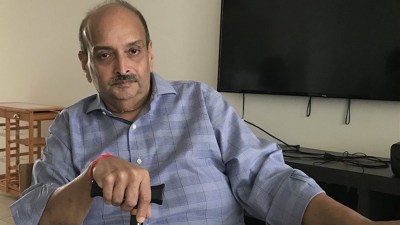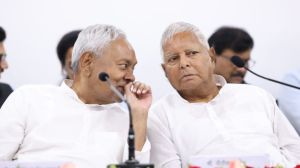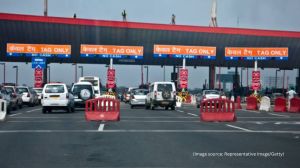Separate councils for Jammu, Kashmir: Cong
As an answer to the National Conference’s autonomy and Peoples Democratic Party’s self-rule slogans, the Congress on Sunday promised that if it was voted to power in the Assembly polls, it would amend the state’s Constitution so as to provide federal structure, envisaging regional councils for Jammu and Kashmir.

As an answer to the National Conference’s autonomy and Peoples Democratic Party’s self-rule slogans, the Congress on Sunday promised that if it was voted to power in the Assembly polls, it would amend the state’s Constitution so as to provide federal structure, envisaging regional councils for Jammu and Kashmir.
The party’s much-awaited election manifesto, which was released at party’s headquarters here by Congress general secretary and Union Minister of State in the PMO, Prithviraj Chavan, pointed out that the “Congress is committed to comprehensive devolution of power to people of the Jammu and Kashmir state”. It pointed out that its federal concept guaranteed unity and integrity of the regions and the state.
Released in the presence of Pradesh Congress president and Union Minister Saifuddin Soz and former chief minister Ghulam Nabi Azad, the manifesto has 30 pages. But only 10 pages of the document entitled ‘Manifesto of Peace, Dignity and Hope’ are actually the manifesto and the rest focus on the milestones and achievements of the Congress-led coalition in the state.
In his address, Soz said the Congress was open to a dialogue on the devolution of powers. But they would not agree on anything that stresses dilution of powers as was the case in certain manifestos. If voted to power, the Congress would strive for a dialogue with the Centre, and between New Delhi and Islamabad so that a peaceful solution could be found.
Asserting that the Congress was proud of its achievements, Chavan said they were seeking the people’s mandate on a development plank.
Asked to elaborate on the devolution of powers, Azad said some parties in Kashmir, Jammu and Ladakh were hell- bent on dividing the state with their demands, alleging regional discrimination. “After 2002, we set up a financial commission to look into the issues of regional imbalances. The commission was to present its report in August this year, but that has not happened yet. We are waiting for that. Through the recommendations in the report, we are looking forward to devolution of powers,” he added.
On why the Government could not fulfil its promises regarding employment as mentioned in the manifesto, Azad said despite their referring of thousands of posts to the state recruitment agencies, the process could not happen at a pace they had wanted it to as these bodies had very less members and later, the Government fell as the PDP withdrew support. “We increased the strength of the Service Selection Recruitment Board from four to 24 members and decentralised the recruitment process to a large extent to the district-level,” he added.
Apart from setting up separate regional councils for J&K, the Congress will decentralise and devolve powers to district- and block-level councils to ensure effective participation of people in the democratic process.
Other important issues that the Congress has taken up in the manifesto include introducing a Bill in the new Legislative Assembly seeking to constitute delimitation commission, implementing the recommendations of the sixth Central Pay Commission, adopting a comprehensive employment package for the unemployed, granting stipend to the unemployed, and seeking a special quota for the unemployed from the Centre.



- 01
- 02
- 03
- 04
- 05




























